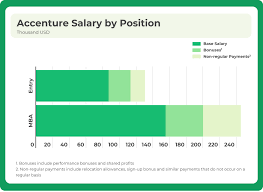
A consultant is defined as a professional who assists companies in various aspects of their operation. Consultants at the lowest levels of the pyramid understand their work better, and are often more sought after by clients. However, many aspire to reach higher levels. Below are descriptions of some of the various types of consulting jobs.
Job description of a business consultant
The job of a business consultant is to assist a company in improving its operations. This could involve helping the company merge, change its structure or other activities. They can also be a support role for middle management in transition periods, helping to improve day-to-day operations. A business consultant will conduct an audit of the company's operations to identify problems. A consultant can help the business find new ways to improve production, and make it more efficient.
A business consultant works in the corporate world on a contractual or permanent basis. These consultants are usually experts in their industry and use that knowledge to improve a company’s operations. They often meet with executives and department heads to discuss business goals and identify areas for improvement. They help companies create ongoing budgets by conducting assessments.

Selecting a consulting company
Consulting firms can be a great option if you need help with your business. These businesses specialize in providing solutions for different business problems, and they can also provide advice on running the business successfully. For your business to succeed, it is important that you choose the right consultancy firm. Make sure the firm has both the experience and the profile that you require.
The best consulting firms will be efficient and provide results that you are happy with. A large, sprawling consulting firm should not be chosen just because it charges a low fee but will agree to everything. It is important to find someone who is able to solve your problem and not just tell you what you want. The firm should be able assess your company problem and offer you the best options.
Culture is another thing to consider. The choice of a consulting company that doesn't reflect your culture can cause problems and conflicts halfway through the project. Make sure to meet with the firm to ensure you are a good cultural fit. This will allow you to communicate more effectively with the firm and build a better client-consultant relationship.
Selecting a specialty area
A key step in building your brand is choosing a niche for your consulting business. You can cut costs and increase productivity by focusing your efforts on a single industry. However, it is important to choose an industry that is stable and growing. This will ensure that you don't become obsolete. Your brand will be stronger if you choose a niche.

Your ability to specialize in one field will enable you to do more work, as well as allow you charge a higher rate. Clients will pay for your expertise in a specific area.
FAQ
What can I expect of my consultant?
You should hear back from your chosen consultant within a few days. They will ask you for information about your business, including the mission, goals, products, and budget. They will then send you a proposal that outlines the scope of work and estimates timeframe, fees, deliverables, milestones and other details.
If everything looks good, then the two parties will negotiate a written contract. The terms of the contract will depend on the type of relationship between the two parties (e.g., employer-employee, employer-independent contractor).
If all goes according to plan, the consultant will begin working immediately. The consultant will have full access to your files and resources. You'll also have access to their skills and knowledge.
Don't assume that someone who is a consultant knows everything. To become an expert in any field you consult, it takes practice and effort. You shouldn't expect your consultant will know everything you need to know about your business.
How do I attract clients to my consultancy business
Finding a passion area is the first step. This could be social media or public relations. However, it must be something that you are passionate about. You may need to start small and find a niche market like web design. Once you have discovered the niche, understand what it does. What problems does the solution solve? Why should people use this? How can you help them?
You can also approach businesses directly.
If all else fails, why not offer your services at free events like networking evenings and conferences? You'll meet many potential customers without spending money on advertising, and you'll be able to show off your skills.
What happens when the consultant is done?
After the consultant finishes the work, s/he will send a final report outlining the results. This report details the project timeline, deliverables, as well any other pertinent information.
Then, you'll review the report and decide whether the consultant met your expectations. If it does not, you can ask for changes or terminate the contract.
What is the difference in a consultant and advisor?
A consultant is an advisor who gives information on a particular topic. A consultant can offer solutions.
Consultants work directly for clients to help achieve their goals. A consultant provides advice to clients through books and magazines, lectures, seminars, and other means.
How did modern consulting come to be?
Consultants were originally accountants who could help companies manage their financial affairs. They were known as "accounting consults" because they are highly skilled in the management of financial information. This role quickly expanded to include human resource management.
The French word meaning "to advise" in French is what gave rise to the term "consultant". This term was originally used by businessmen to denote someone who could give guidance on how to run an enterprise. Even today, many business owners still use "consultant" when referring to professional advisors.
What skills is required to consult?
As a consultant, you should have both strong interpersonal skills and analytical skills. This is crucial because you might not be able to understand what you are doing when you work on complex projects. It is important to learn how to quickly solve problems and manage people.
Communication skills are essential. Most clients expect an answer within 24 hours. If they don’t hear from you within 24 hours, they assume you don’t care. It's crucial to keep them informed and make sure they understand everything.
Statistics
- My 10 years of experience and 6-step program have helped over 20 clients boost their sales by an average of 33% in 6 months. (consultingsuccess.com)
- So, if you help your clients increase their sales by 33%, then use a word like “revolution” instead of “increase.” (consultingsuccess.com)
- According to IBISWorld, revenues in the consulting industry will exceed $261 billion in 2020. (nerdwallet.com)
- Over 50% of consultants get their first consulting client through a referral from their network. (consultingsuccess.com)
- WHY choose me: Why your ideal client should choose you (ex: 10 years of experience and 6-week program has helped over 20 clients boost their sales by an average of 33% in 6 months). (consultingsuccess.com)
External Links
How To
How to Start a Consultancy Company and What Should I Do First
You can make a lot of money by setting up a consulting business. No prior business experience is required. You can start your own consulting firm by building a website. Once you've built a website, you'll want to use social media platforms such as Facebook, Twitter, LinkedIn, Instagram, Pinterest, YouTube, etc... to get the word out about your services.
You can create a marketing strategy that includes these things with these tools
-
Writing content (blogs).
-
Establishing relationships (contacts).
-
Generating Leads (lead generation forms).
-
Selling products through ecommerce websites
Once you've created your marketing strategy, the next step is to find clients who are willing to pay you for your services. Some prefer to meet up at networking events or go to meetings, while others prefer to use online platforms like Craigslist, Kijiji, and others. The decision is up to each individual.
Once you've found new clients, you'll want to discuss terms and payment options. This could include flat fee contracts, hourly fees or retainer agreements. Before you accept a client, you need to know what you expect so that you can communicate clearly all through the process.
The most common type of contract for a consultancy service is an hourly agreement. This type of contract requires you to provide certain services at fixed rates each week or month. Depending on the type of service you are offering, you may be able to negotiate a discount depending on the length of the contract. Make sure you understand what you are signing when you accept a contract.
Next, you will need to create invoices that you can send to your clients. Invoicing is one those things that seem so simple until you actually do it. You have many options to invoice your clients. For instance, some prefer their invoices to be emailed directly to clients while others prefer hard copies to be mailed. No matter what you do, make sure it works!
After you've created your invoices, you can collect payments. Most people prefer PayPal because it is easy to use and offers various payment options. However, other payment processors are available, including Stripe, Square Cash, Google Wallet, Apple Pay, Venmo, etc.
Once you are ready to start collecting payments, it is time to open bank accounts. You can track income and expenses separately by having separate savings and checking accounts. Automated transfers into your bank account are a great way to pay bills.
Although it can seem daunting when you first start a business as a consultant, once you get the hang of it, it will become second nature. You can read our blog post to learn more about how to start a consultancy business.
It's a great way for extra income without having to worry about hiring employees. Consultants can work remotely so they don't have the hassle of dealing with office politics and long working hours. Being able to work remotely allows you more freedom than traditional employees.